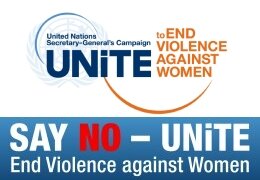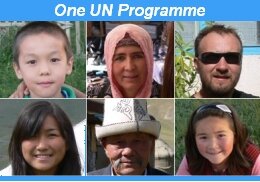| Stories on Juvenile Justice |
|
|
| Categories: (UNICEF | UN Agencies | Other Documents | Document Database) |
|
UNICEF: A mission to save children from ending up in prison and to return them to society First success story: Sergey - When hope returnsSergey (his name was changed for ethical reasons) grew up in a good family. Despite the fact that his parents split up, leaving him to live with his mother in Bishkek, he was in regular contact with his father, and visited him at Issyk Kul, where he went skiing. This public organisation, with the help of international organisations and donors had given itself the task of supporting in whatever ways possible those children who had ended up behind bars through no fault of their own, and since 1998 has worked in the young offenders' institution. "It was not easy to restore Sergey’s trust in the judicial system, and to restore his own self-confidence," says Guljan Bekembaeva, Director of “Insan Generation”. "We had to work with him and many other children on a day-to-day, month-to-month basis, in order to bring them back to ordinary life and accustom them to positive thinking." But the result of the painstaking work surpassed all expectations: the boy was released under an amnesty, and on the very first day outside he submitted documents for a place in a vocational collage, in order to train as a chef. Now Sergey is in demand in the best restaurants in Bishkek, and he has his own family. He is a well off man and already able to remember his past without a shudder. Second success story: Marat - through thorns to the stars Marat grew up in a rich family, but his parents had no time to care for their child. When Marat was in the 10th grade of school something occurred to change his life irrevocably. In a bitter adolescent fight, a boy was killed, and Marat was given a prison sentence for complicity to murder because he was put at a group implicated in the murder. But the work with the adolescent was also not in vain - as soon as Marat was freed from the prison, he began to work in children's homes and to help children who like himself had been left without parental care and attention. Now the youth is one of the most successful students of Bishkek Humanities University, and he is studying to become a social worker and dedicate his life to groups at risk. He has been written about in newspapers. On 8 May 2008, a Protocol on Mutual Understanding and Cooperation was signed between the Kyrgyz Republic's Ministry of Justice; the Supreme Court; the State Agency for Physical Education, Sport, Youth Affairs and Child Protection; and the UN Children's Fund (UNICEF). This Protocol is concerned with reform of the juvenile justice system in Kyrgyzstan and the ongoing transition from a punitive to a restorative system to deal with children who come into conflict with the law. As of May 2008, a UNICEF pilot project has begun in Sverdlovsk District of Bishkek with support of UNICEF Australia. Its main purpose is to ensure that all the rights of all children who come into conflict with the law are protected from the very beginning, so that the children do not suffer from labeling, so that law enforcement officials, judges, and lawyers, and also society as a whole, see them not as criminals but as children who have found themselves in a difficult situation. "Both I myself and the members of the Working Group who have been working on the draft Law on Juvenile Justice since 2006 and have done all in their power to hasten reform in this field are convinced that the state should not punish children who break the law," says Janyl Alieva, Chair of the Supreme Court of the Kyrgyz Republic. "Reform in this area is possible and will be realized in the near future," she continues. Third and last story: Ermek - revenge on society for a stolen childhood The boy lived with a father without legs on the fifth floor. His mother left them, and the family lived in constant need. In order to feed the family and his helpless father, nine year old Ermek stole television antennas from the roofs of multi-storey buildings and sold them for 50 som (about $1.50) each. When he was arrested the boy said that he didn't have any other choice. "I didn't want to cause anyone harm, and thought that antennas are the most inoffensive things," said the boy during initial investigations. Unfortunately, the boy ended up in the young offenders' institution, which he left as an experienced thief. He "works" in the capital's markets stealing what he can, and is not planning to return to ordinary life. By Olga Grebennikova |





















